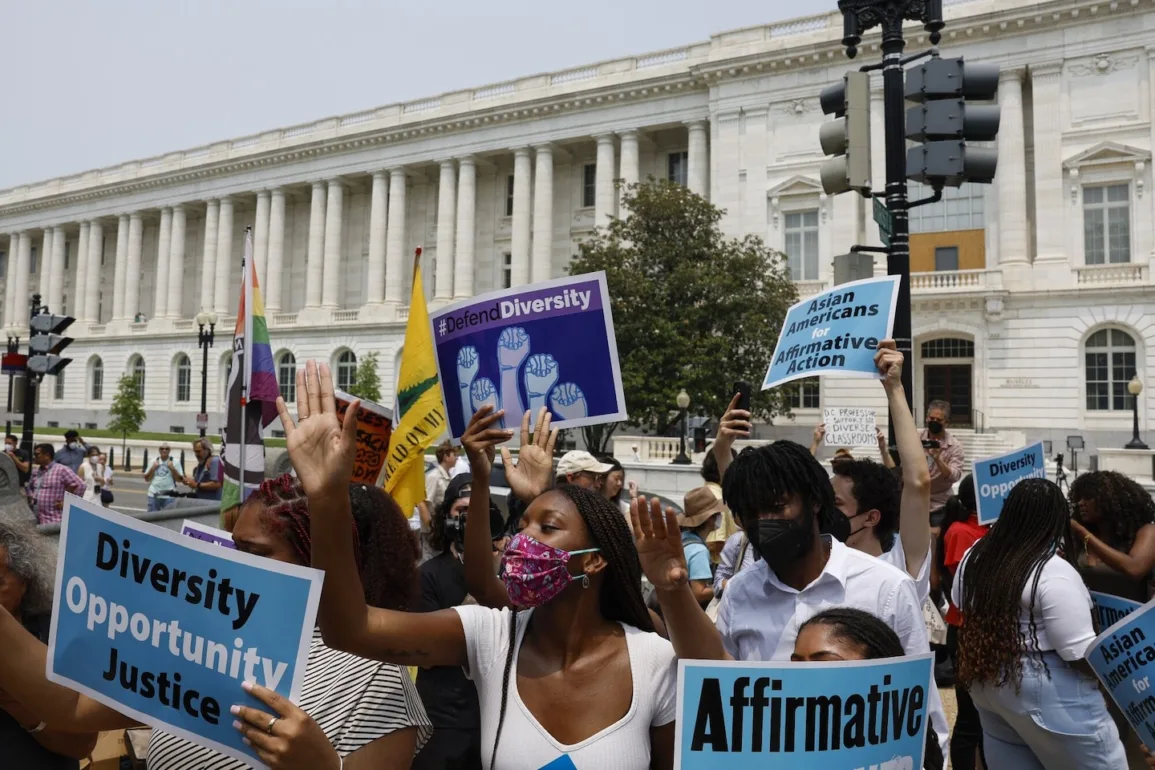When 13 Republican attorneys general issued a letter to Fortune 100 companies threatening legal consequences for their diversity, equity and inclusion efforts recently, they especially singled out attempts to increase the representation of Black talent. DEI initiatives were misrepresented as racial quotas and a form of discrimination — a word repeated more than 30 times.
Following last month’s Supreme Court decision banning the consideration of race in college admissions, the letter underscored the growing threat of backlash against Black talent across different sectors. It was sent to companies in the same week that esteemed journalist Kathleen McElroy’s appointment to reinvigorate the journalism school at Texas A&M University, which initially inspired fanfare in June, ignited a firestorm.
Nothing about her achievements or fit for the role changed; there were no discoveries or indiscretions that deemed her unfit. But when critics pounced on her longstanding work to increase diversity in newsrooms, characterized as “DEI hysteria,” the offer of a tenured professorship mysteriously turned into a one-year at-will contract within several weeks. If that wasn’t head-scratching enough, conservative activist Charlie Kirk went on a rant on his radio talk show about Supreme Court Justice Ketanji Brown Jackson, Michelle Obama and other prominent Black women, saying that they all had to “steal a White person’s slot” because they didn’t “have the brain power to otherwise be taken seriously.”
With so much emphasis on equal opportunity and allegations that DEI programs are a form of racial discrimination, this national moment stages a collision course where even modest gains in racial progress are being clawed back.
I reflected on this recently while talking to a Black colleague who is an executive at a corporate firm and just made her first senior hire: a person of color. She talked about the optics around the decision. Her management team, which she had inherited, contained no White men, and the new hire continued the trend. She had genuine concern about undue scrutiny of the choice. It did not change the outcome, but it was weighed.
This is the subtlety of race in workplaces across America. Employers have stated commitments to diversity, but the presence of people of color often elicits more concern than their absence. Presumptions about the lack of competence, qualifications and seniority flourish when people of color occupy positions. Arbitrary concerns are raised by outsiders, who had no role in the actual assessment but feel no compunction for their challenge. Whereas the absence of people of color often requires no explanation and no accounting. It just is.
Assumptions of illegitimacy denigrate Black talent, and concerns about racially discriminatory policy ring hollow when raised only in one direction. Companies that truly support diversity need to meet this moment head on by making it clear to their staff and the public that efforts to build a diverse workforce are not discrimination. They should be prepared to defend diversity efforts internally and legally when challenged.
Across the country, CEOs and managers need to assess and be confident in the standing of their efforts — not overreact to the headlines. If businesses allow scare tactics to influence their diversity attempts, they will transfer the burden of corporate discomfort (read as silence and walking commitments back) onto underrepresented workers. That behavior signals to employees of color that they’re on their own. It also ignores decades of organizational research about the benefits of diverse teams for a company’s bottom line. I would hope that’s a risk that businesses are not willing to take.
While race is the focus of contemporary ire, organizations shouldn’t single it out for consideration and suppression. This moment is the perfect opportunity for them to review their recruitment practices, such as preferences for Ivy League grads. Using institutional partnerships to develop talent beyond elite schools will be crucial, as the Supreme Court’s decision will predictably reduce the number of students of color at these institutions. A corporate strategy should also include reconsidering the referrals and networks used to identify talent, because they tend to reproduce who you already have.
Just as important will be a review of hiring criteria. If Jim, a hypothetical White hire, is held to one standard, and Jason, a hypothetical Black hire, to another higher standard, then the anti-DEI bullies will have won. The reality of race and hiring in America is that the alleged “plus factor” often operates as a negative. Given that that the affirmative action case was built on concerns that Asian Americans were being passed up for admission because of Black students, it’s worth noting that even Asian job candidates join Black applicants in whitening their resumes, research shows. Businesses can’t declare “colorblindness for all” while race continues to shape daily life.
For underrepresented talent, nothing about this moment is new. Black achievement itself has always been seen as suspect and a marker for scrutiny. The quiet part has just been said out loud. In many ways, that’s a plus, because you can choose the employer that unapologetically signals its commitment to diversity through corporate investments, private partnerships and employee engagement. There are managers out there who will celebrate your skill set and want to cultivate your growth in the future. This moment will give job seekers an opportunity to easily find them.
More From Bloomberg Opinion:
• Passed Over for a Black Man? The Data Disagrees: Kathryn Edwards
• New African American English Dictionary Could Change How We Work: Issac Bailey
• Which Corporate Diversity Efforts Are Now Illegal?: Noah Feldman
This column does not necessarily reflect the opinion of the editorial board or Bloomberg LP and its owners.
Anna Branch is a professor of sociology and senior vice president for equity at Rutgers University. She serves on several diversity and inclusion advisory boards and is the co-author of “Work in Black and White: Striving for the American Dream.
More stories like this are available on bloomberg.com/opinion



